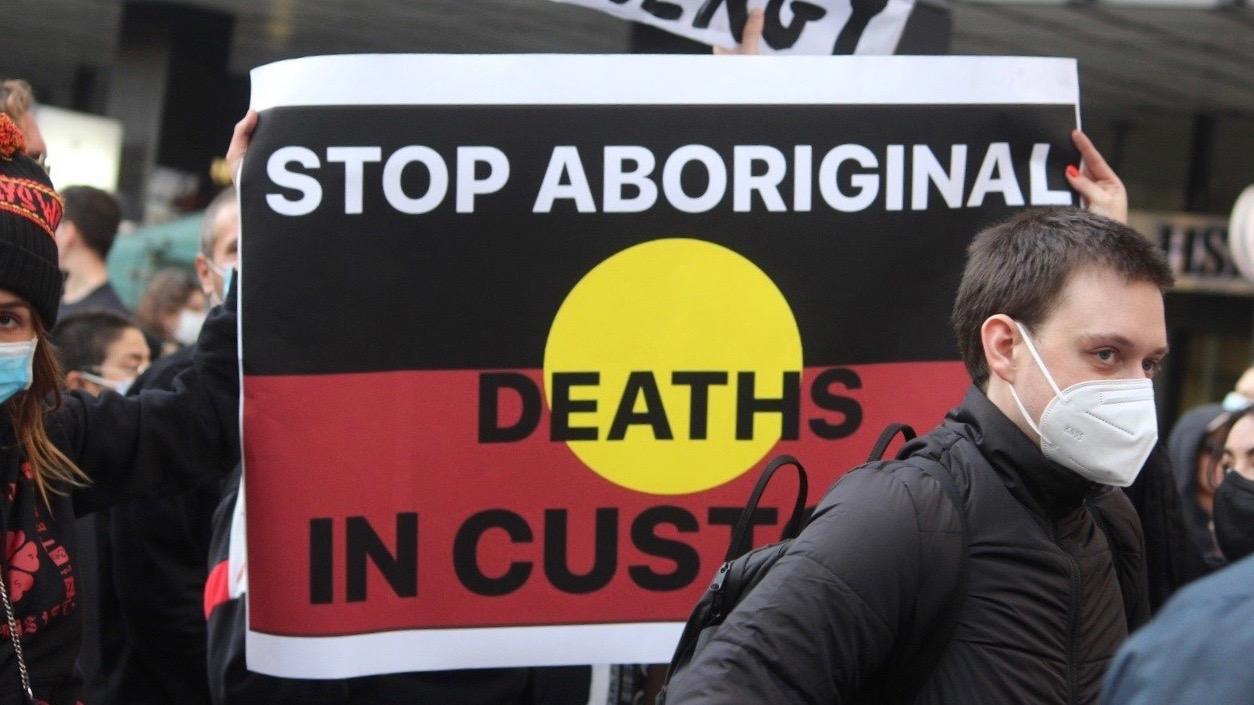The confirmation of yet another aboriginal custodial death in the Australian State of New South Wales (NSW) has raised alarm from indigenous rights groups and advocates of criminal justice reforms. On Thursday, March 25, the NSW and Australian Capital Territory branch of Aboriginal Legal Service (ALS) confirmed the custodial death of a 37-year-old indigenous man, Anzac Sullivan.
According to the statement released by ALS, Sullivan who belonged to the Barkindji tribe of NSW, was killed during a police pursuit on March 18 in the town of Broken Hill in the State. The news of his death closely follows the revelation of three other custodial deaths of indigenous Australians earlier this month.
All three individuals died while in prison. The first two deaths – of a man in his mid-30s and a woman in her 50s – came to light earlier this month when the commissioner of Corrective Services NSW, Peter Severin, was questioned during a budget hearing in the parliament on March 9.
Severin admitted that the authorities chose not to publicize the deaths in order to not “cause a lot of anger, a lot of angst and a lot of grief.” ALS, which was the only non-governmental body to be informed of the deaths, has been calling for greater transparency and a proper investigation into these deaths.
Two days later, the State government in Victoria announced the third custodial death on March 11. ALS reiterated their calls for transparency and urgent reforms in the prisons-system and law enforcement. With news of Sullivan’s death, ALS has made that call once again.
In its statement, ALS has said that for “four deaths to occur in the space of a little over a fortnight is a huge red flag that something is seriously wrong with police and corrections systems in Australia.”
“We are devastated and furious that another precious life has been lost,” said Sarah Crellin, a principal solicitor at the ALS’s regional branch. While expressing outrage, ALS called for the government to urgently commission an independent inquiry.
The recent deaths have evoked strong condemnations from rights groups and opposition leaders. “We are extremely concerned that while our people continue to die in custody at alarming rates, federal, state and territory governments have had the answers to end this injustice for 30 years but have chosen not to act,” said a statement by the National Aboriginal and Torres Strait Islander Legal Services (NATSILS) in response to the news of the third death in Victoria.
Australian Green Party leader Lidia Thorpe, an indigenous senator from Victoria, strongly responded to Sullivan’s death in the parliament: “We are still being genocided out – this is genocide.” She added that steps need to be taken to make the authorities accountable for the increasing incarceration and deaths of indigenous peoples. “There needs to be accountability and those police that are responsible for killing our people need to be held to account,” she said.
According to ALS, the criminal justice system has failed to implement most of the 339-odd recommendations made by the Royal Commission into Aboriginal Deaths in Custody in April 1991. Indigenous Australians continue to be the worst-affected by policing in the country. According to a 2021 report by Australia’s Productivity Commision, between July 2019 and June 2020, the indigenous imprisonment rate was as high as 1,935 for every 100,000 adults, compared to 166 for non-indigenous people.
The report found that of the annual average prison population of 42,656 across Australia, 12,456 are indigenous peoples – over 29% of the prison population. This is when the community constitutes around 3.1% of the national population. The difference gets even starker in a State like Northern Territory where indigenous groups are over 30% of the population but constitute most of the prison population.
ALS has documented more than 500 deaths of indigenous Australians in custody till January 2021. Some other estimates put the number at around 440. “As we approach the 30th anniversary (on April 15), it’s unfathomable that more lives are being taken, with no sign of meaningful action from governments,” Crellin added.





